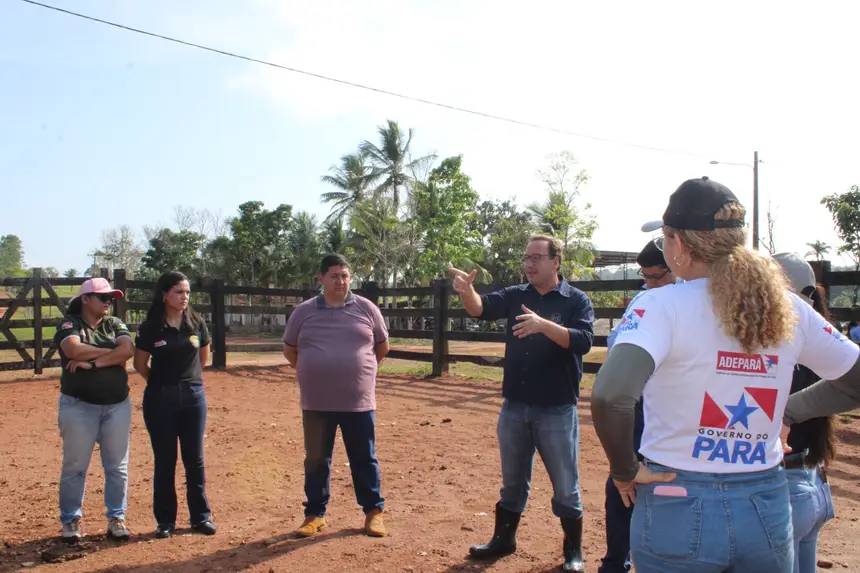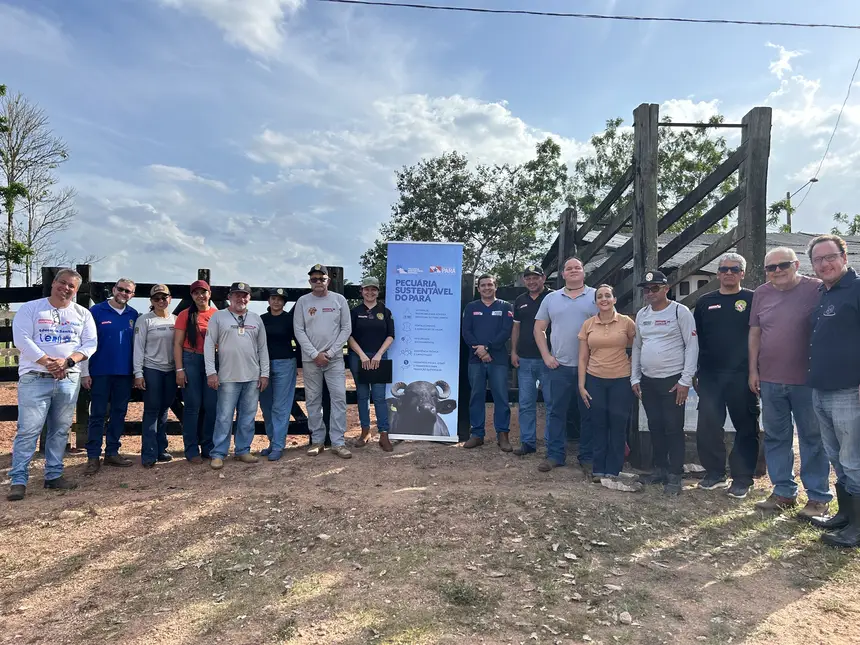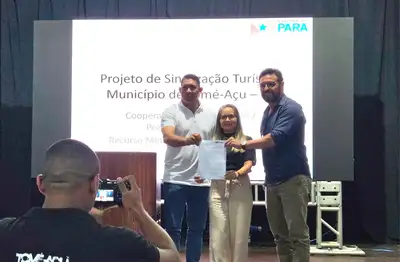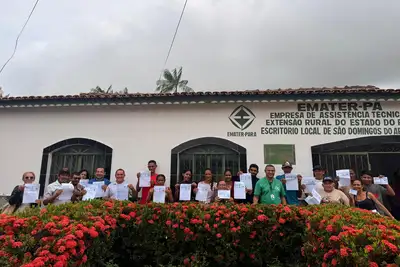Sustainable Livestock Farming conducts first 'tagging' in cattle with Registration in Breed Association
In 2026, all cattle and buffaloes circulating in Pará must have the Animal Transit Guide and individual identification, complying with the Traceability System
The livestock production in Pará is advancing with the use of new technologies and management tools that enhance the health and management of herds. The individual identification of cattle and buffaloes, implemented by the Pará Agricultural Defense Agency (Adepará), through the Sustainable Livestock Program, aims to strengthen sanitary management and has already resulted in the marking of 60 purebred cows (P.O.) in Capanema, in the northeastern region of the State.
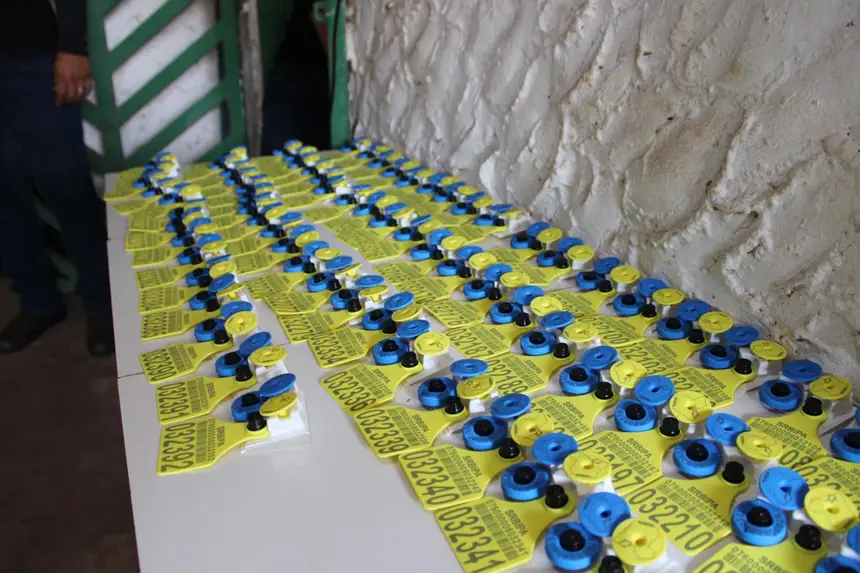
One of the main benefits of this action, known as "tagging", is to improve property management and herd handling. Through this process, it is possible to monitor the history of each animal, such as weight gain, reproductive indices, vaccination protocols, and any diseases. Individual identification also facilitates sanitary control, which was highlighted by rural producer Bruno Araújo, who used individual identification on his Tabapuã breed cows, registered in a breed association, with the aim of optimizing the management of his property.
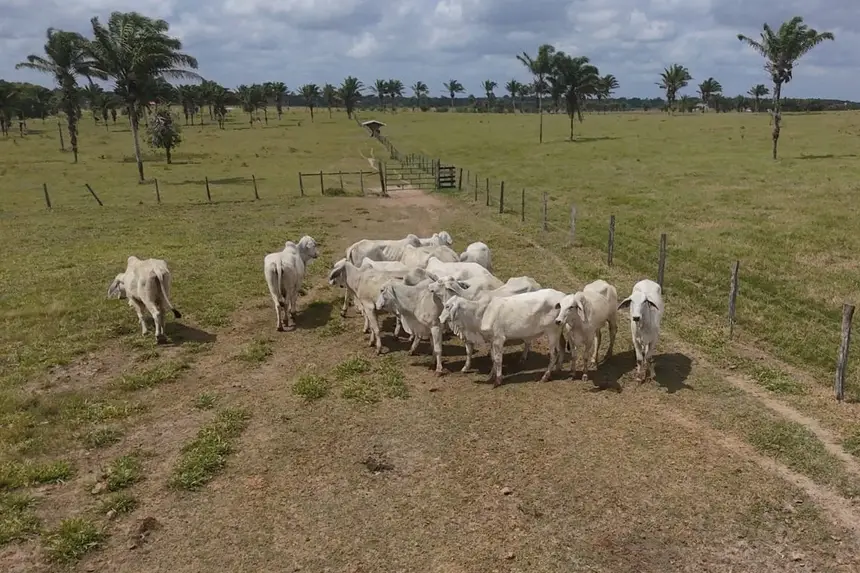
Although Ordinance No. 3,879 from Adepará, which regulates traceability in the Pará territory, exempts registered cattle and buffaloes in breed associations from the obligation of individual identification due to the genealogical registration number marked by branding or tattooed on the animals, the producer opted to use the electronic tag. This resource will assist in the management of the animals, ensuring more efficiency and control on the property.
Benefits of traceability - The "tagging" was carried out as part of a training on Animal Welfare and Good Practices of Individual Identification, aimed at operators of the Adepará Traceability System and staff from the regional offices of Castanhal, Capanema, and Marajó. The training was conducted by the Defense Agency last Wednesday (22), in partnership with IDH and Natcap.
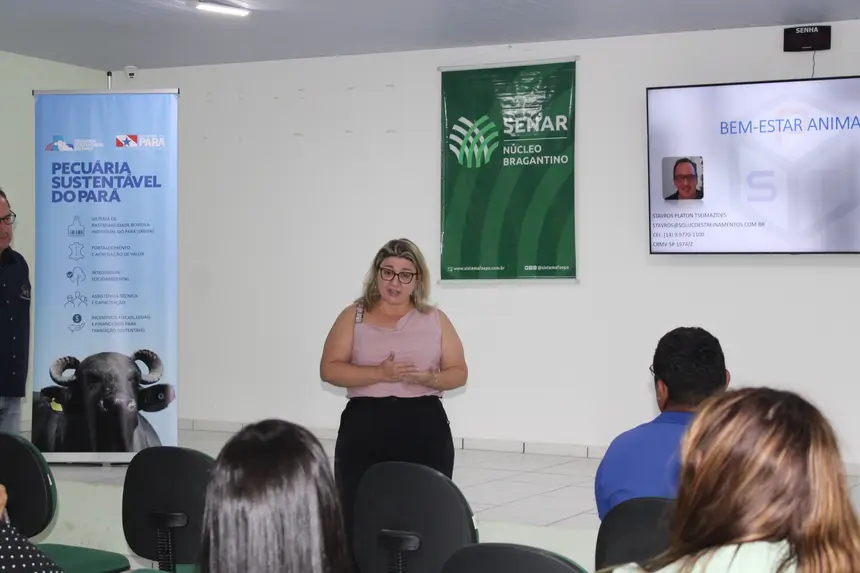
According to Graziela Oliveira, director of Animal Defense and Inspection, the action aims to qualify agricultural defense staff, bringing innovations to the field. "We are introducing new practices to train our staff, with an emphasis on animal welfare, which complements traceability actions. In addition to virtual stages, we are now combining theory and practice in the field," she informed.
Kid Almeida, regional manager of Capanema, emphasized the importance of training for staff who deal directly with animals. "The course on animal welfare will help us in our daily activities. In the field, we are constantly in contact with the animals, conducting clinical inspections and applying traceability, ensuring the safety and welfare of the animals during all activities," he explained.
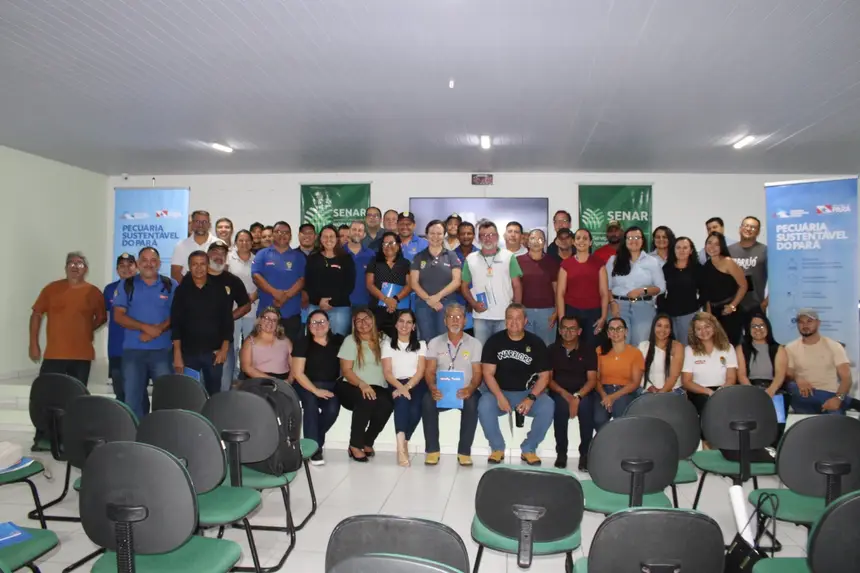
Alerts to producers - With less than 90 days until the implementation of the Sustainable Livestock Program decree, Barbra Lopes, manager of Agricultural Registration and Traceability, issued a warning to producers. "Currently, producers can still issue GTA (Animal Transit Guide) for both identified and unidentified animals. However, it is essential to pay attention to the deadlines: Starting January 1, 2026, every animal that will transit in the State needs to have the GTA and individual identification, with two tags: one electronic (blue) and another visual (yellow)," she explained.
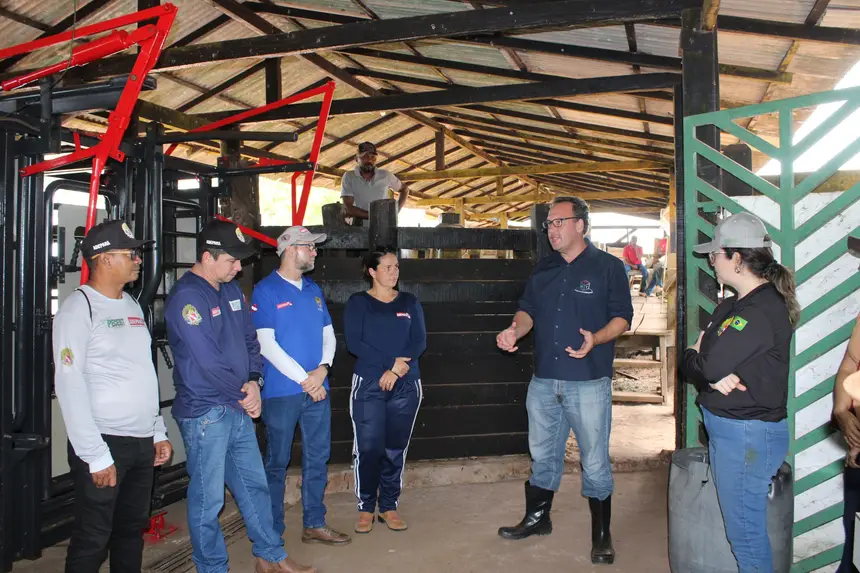
The identification tags are provided free of charge by the Government of Pará to producers who have up to 100 animals. To obtain the items and carry out the identification, producers can contact Adepará in their municipalities.
Starting January 1, 2026, all movements of cattle and buffaloes in the State must be accompanied by the GTA and individual identification of SRBIPA (Official Traceability System for Cattle in Pará). From January 2027, all herds must have individual identification, according to the program's goals.



